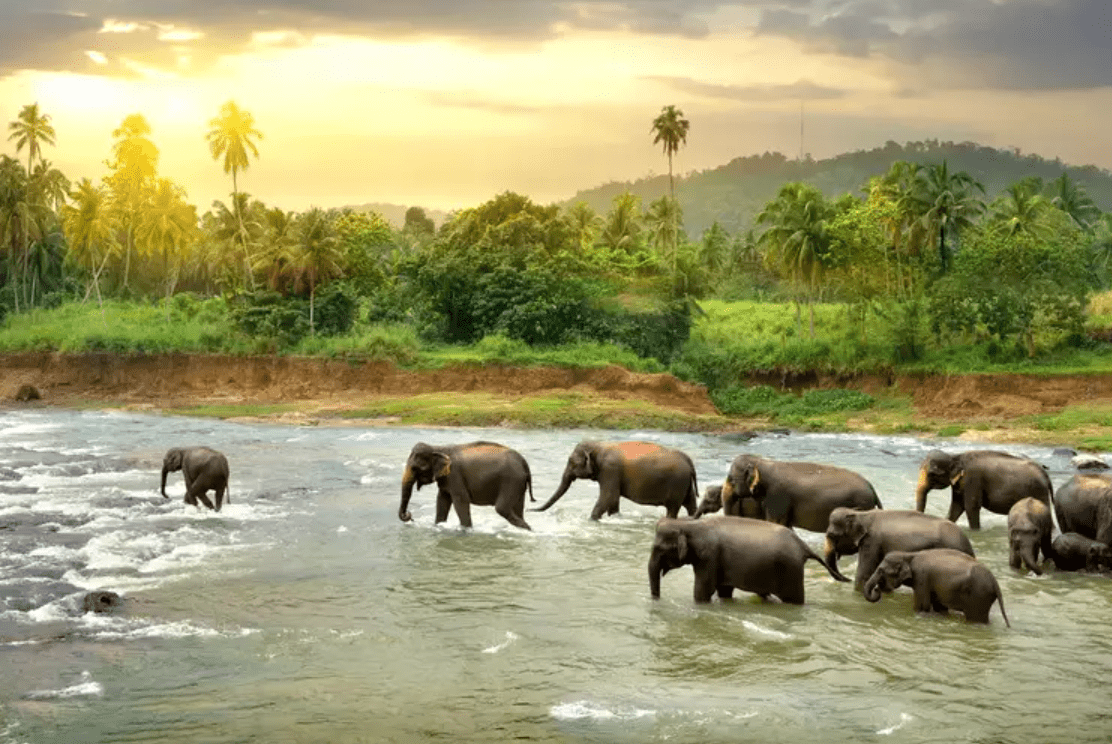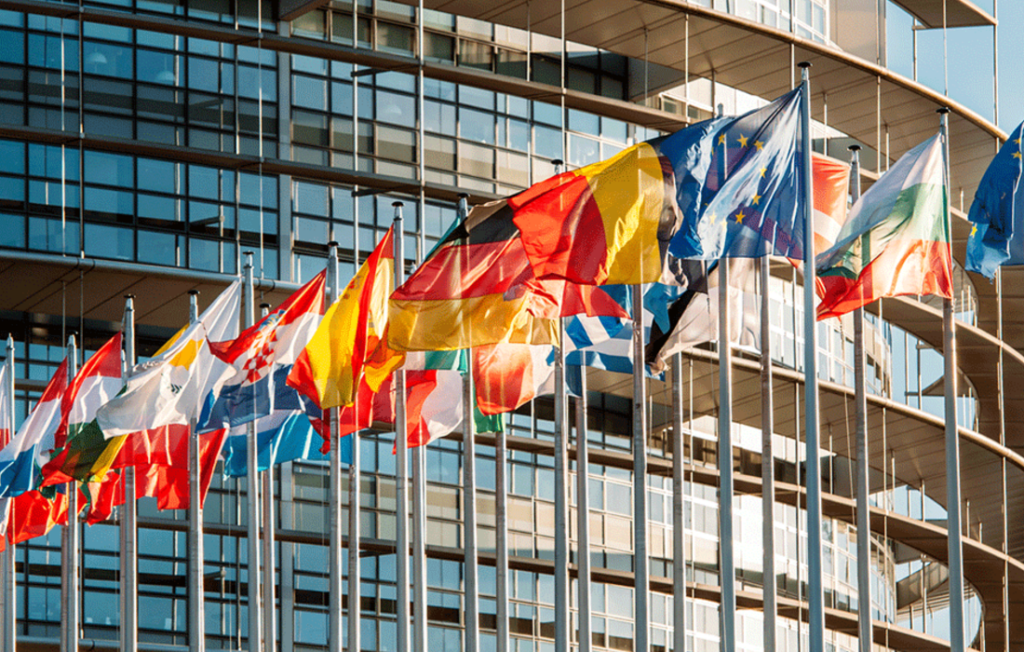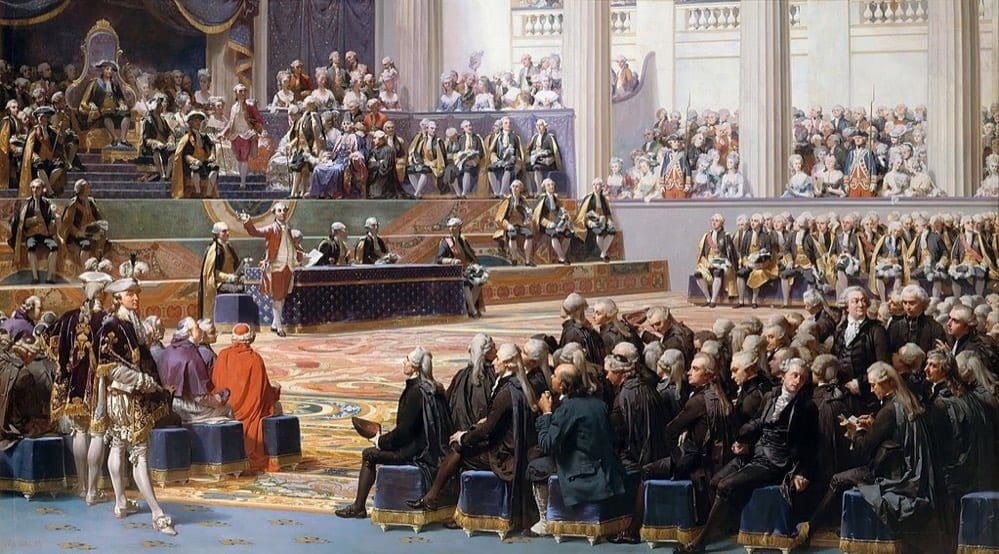

The Unrest in Sri Lanka Has Been Exaggerated
The writer is in Sri Lanka.
When I wrote my first postcard from Sri Lanka for the Daily Sceptic in 2020, I was at pains to point out the gross over-reaction to Covid that was on display.
Today, with the toppling of a President and a South Asian equivalent of the ‘storming of the Bastille’, so much of the discontent and unrest still flows from that period when much of the world lost both its wits and its way.
President Gotabaya Rajapaksa (scheduled to resign on Wednesday 13th July, the monthly full moon ‘Poya Day’ by the Buddhist calendar) was elected in 2019 to an already indebted nation which had not built up its export sector, emaciated its manufacturing sector and was living off imports brought in on borrowed money.
At the time of his election, the key source of foreign exchange, the tourism sector, was just recovering from the ruinous impact of the Easter 2019 terrorist bombings. By early 2020, the once-hailed “world’s favourite destination”, as per the Lonely Planet, was back at pre-Easter tourist numbers.
Facing unmanageable short-term debt, the President inexplicably cut taxes. It was economically incoherent, but this was the beginning of a pattern.
Then, Covid hysteria hit. There was no curve to flatten in Lanka, just a trickle of cases and and inconsequential number of ‘Covid deaths’. Nonetheless, Sri Lanka responded by imposing the world’s most repressive (according to the Oxford Stringency Index) 24/7 ‘curfew’ (not just ‘lockdown’) for several months.
While neighbouring South Asian countries built up their reserves over the Covid period by 30-40%, the President and his cabal of cronies depleted national forex reserves in Sri Lanka by over 80% in the same period.
The curfews had numerous consequences. The body blow to the economy from the virtual outright cessation of all economic activity for almost two months was over $1 billion.
Thereafter, the Covid regime and its costs – imposed for ‘safety’ reasons yet to be enumerated or validated – made key industries like garments uncompetitive. Garment manufacturers began to go offshore to Bangladesh and Vietnam.
At every whiff of a Covid surge, back came the curfews. No Government proclamation could be trusted as to when a modicum of normal life might resume.
Testing became big business and the still small number of ‘Covid’ death certificates were riddled with comorbidities. A senior army official who was asked how many death certificates had Covid as the primary cause of death, indicated “about 30-40” at a time when 700 daily deaths were being attributed.
Bangladesh, reliably less zealous and alarmist, emerged with a booming economy, and in fact was in a position to offer Sri Lanka $250 million by way of a currency swap and deferred repayment terms. Bangladesh is a far less developed country with a far lower GDP, but far greater economic health and sobriety.
The Covid alarmism, with delusions of ‘Zero Covid’ never far from the national consciousness, kept tourism at bay with fantasy ‘bubbles’ and quarantines that made visiting far from attractive. This while neighbouring Maldives was racking up historic tourist numbers.
And not just Maldives. Morocco (population 38 million compared to Sri Lanka’s 22 million), though tourist numbers were down in 2021, still managed 6 million. Pre-pandemic, Sri Lanka could see as many as 2 million tourists in a year, but barely managed 194,000 in 2021.
Further Economic Bungles
Following the global pandemic delirium, the Government went big on money printing, for which we are now paying via inflation (above 50% now).
Then, despite advice from agronomists and specialists, the President decided to overnight go to organic fertiliser exclusively, a feat not pulled off by the greenest of jurisdictions. Even the EU countries aspiring in this arena for decades have at most approached 20% organic.
To avoid the cost of $250 million in imported fertiliser, the multi-billion-dollar iconic tea industry was devastated, while multiple harvests were undermined, creating a food crisis as well.
The rupee had been artificially sustained against the U.S. dollar from September 2021, but rather than having a managed float or a gradual readjustment as debt was restructured, a bungee jump without a bungee was undertaken. And so the rupee was floated, again in one day, losing over 30% of its value overnight, with multiple businesses suddenly no longer viable, wreaking havoc in the markets and among the population.
The escalating forex crisis metastasised into a fuel crisis and an electricity crisis, and in time into an essential medicine crisis and food crisis.
The blackouts, with diesel shortages making generator use problematic, made it difficult to operate tourist establishments again just as a tourism rebound was getting underway.
The fuel crisis also had an impact on manufacturing and on supplies reaching businesses, while missed payments had an impact on economically critical imports.
Sri Lanka had delayed for years going to the IMF, which it had been urged to do when it was in a much stronger position. Wanting to avoid scrutiny and having succumbed to the global malaise of magical thinking in government spending it held off until it couldn’t any longer.
The old saw is apt: “How do you go bankrupt?” “Gradually – then suddenly.”
The economic devastation is hard to assess properly. Taking the longer view, Sri Lanka had over $7 billion in foreign exchange reserves at the end of 2019, but by May 2022 it could not rummage up $500,000.
And so, Sri Lanka finally defaulted, being the only country in this regional neighbourhood to do so, and for the first time since it achieved independence. This was perhaps inevitable, as in the circumstances using scant funds to repay debts rather than supply essentials would not seem prudent, and they likely felt that the debts would be addressed as part of the restructured debt agreement being cobbled together with the IMF.
The Protests
With no way forward and no way out, and with credible claims of national looting by the ruling junta, the Aragalaya began as a protest against power cuts in March 2022. It was essentially leaderless, but unified in wanting the President’s resignation.
It was remarkable in that young and old came and camped out on the main artery of Colombo, the Galle Face Green. Women, for the first time in the history of this nation, came out in public protests, while representatives all the religions of the country joined in.
On May 9th, Mahinda Rajapaksa, then Prime Minister and also the President’s brother (who was himself President 2005-2015, following the civil war), enabled thugs and goons to attack the protestors.
The army intervened and mounting anger erupted. Protests went national and politician’s homes were burned. Sri Lanka teetered towards lawlessness but fortunately, fairly quickly regained its equilibrium.
Mahinda resigned, and a past premier, Ranil Wickremesinghe was appointed. He had been defeated in the last election, but was considered an elder statesman and had a pacifying influence on the IMF, the United States, the EU, Japan (who had more than a few bones to pick with the current President) and others.
Despite members of other parties swapping allegiance to join the interim Cabinet, everything took longer than hoped. The proposed 21st amendment to the Constitution to reduce Executive Powers slalomed hither and thither before passing in highly edited form.
International donors understandably focused on medicine and food, and after the Indian credit line for fuel was cut off, the new Prime Minister began to be seen as someone propping up the President without significantly improving the life of the nation.
Ranil was at pains to point out he inherited a shattered economy and progress was being made, which is true, but not fast enough for many and things soon came to a head.
Just as fertiliser from India was landing and diesel and fuel shipments were on the horizon (the latter in part from a large World Bank relief package), time ran out, as the iconic ninth of the month arrived.
July 9th
Oblivious as ever, the President got himself publicly hooted out of Parliament in the run up to the 9th, an occurrence without precedent here. And then the Javert-like Inspector General of Police tried to impose a police curfew on the eve of the protest day. This was incendiary. It was also illegal, as numerous legal groups pointed out – and Sri Lanka is, at its core, law abiding.
The curfew was called off, but it stoked ire, and people had decided to flout it anyway and to descend upon the nation’s capital en masse.
The later burning of the Prime Minister’s residence (which he had donated to his alma mater, Royal College) was the low point of this protest, as some protestors responded with carnage to alleged police attacks on journalists.
The President was away from his residence, and though water cannon and tear gas were initially deployed, it was clear the army and police did not have the will to use more decisive measures against ordinary citizens whose lives have been savaged in recent months.
And so they streamed (rather than stormed) into the Presidential residence. People swam in the pool, cooked, lounged, took tours, it was surreal. Not much damage happily, and trains ran, and many restaurants stayed open, and it was a large, if raucous street party everywhere else in Colombo away from these two hotspots.
The following day was a relatively calm Sunday. In Galle, the Test Matches with the Australians have continued, though ‘the people’ reclaimed access to the matches by getting past police barriers on the protest day. But no one has felt unsafe; no incidents have been reported.
In the words from Les Misérables, which has been sung here more than once, “It is the music of a people who will not be slaves again” – the spirit and the energy reflecting an ardour for something better.
What Next?
Hot on the heels of all this, the IMF intoned its hope that things would be restored to normalcy so talks can continue, assuring everyone “technical discussions” with the Ministry of Finance and Central Bank would be unaffected. The U.S. State Department also urged a return to “normalcy”.
The news media, both international and local, have been unhelpfully and irresponsibly showing and reshowing the few inflammatory shots, suggesting real danger and upheaval on the ground.
U.K. travel advisories, apparently indifferent to the impact on the country’s economy, urge “only essential travel” due to the impact of the economic crisis, on a webpage that still refers to Covid and “terrorism” (from 2019).
What will happen next? Let us unpack this.
First of all, if the President resigns on the 13th as he has indicated, the Prime Minister constitutionally becomes acting President. If the PM steps down, and there may be constitutional barriers here, the Speaker of Parliament would become President. Either way, the Parliament would then elect by simple majority an interim President who can serve out the remaining term or until elections are called.
If this constitutional procedure is followed, as it appears it will be, then all is being done by the book. That is what a democratic process is all about. It’s hard to see how the resignation of someone with a 3% approval rating who has by all accounts pillaged the country is not an example of democratic progress.
Thus the IMF, USA, U.K. and EU need to take some smelling salts. This is not being done at the barrel of a gun, but following the legal procedures enshrined in the law of the land, which the majority are keen to follow.
We should be glad this is taking place. It certainly is more redolent of legality than much of what we’ve seen in the last few years, as civil rights globally were summarily stripped over an overhyped pathogen with a 99%-plus recovery rate.
As to danger, there isn’t any. This is a radiantly beautiful country – do come and enjoy it! The Australian cricketers were overwhelmed by the Sri Lankan welcome. Those videos have gone viral. The Sri Lankans gushed their gratitude for the Australians for continuing with the tour.
The unrest has been rare, infrequent, and even this last Saturday, 99% of the protests were fully peaceful. Even more to the point, there has been nothing untoward in the tourist sites.
Sri Lanka is still far safer than South Africa, for example – a country that I love. Have any travel advisories been issued for that country? For Brazil, or for Chicago? These places are much more dangerous right now.
No, visitors just exercise basic perspicacity and care. We can still enjoy these places and sites, and rightly so, lest we all become permanently walled off from each other.
Power cuts are down to two or three hours, and all the tourist hotels and establishments have generators. Tour operators will guarantee your tour as they have been deemed “essential services”.
Industries that trade in dollars have now also been cleared to buy fuel directly from oil-rich suppliers without going through the national exchange. There should be no issues being taken around by a car and driver.
The country is desperate to restore tourism revenues, so you can spend away knowing you’re helping the local economy, while having the trip of a lifetime among some of the warmest and most welcoming people in the world. Now is a great time to get better ‘bang for your buck’, whether going the eco route or staying at an Aman, a Shangri-La, a Relais & Chateau or other boutique resort.
No vaccination requirements, no PCR tests, no quarantine on arrival, and if worried about fuel, you can have a marvellous time in one area without going from one end of the island to the other.
So, I invite you to help a beautiful country, undone by silly leadership (not alone on this front), and where the visitor can ‘do well’ with a much needed getaway while ‘doing good’ at the same time.
Reflections
Sri Lanka is now seeking once again to determine what it will be. It has to be willing to lead via citizens and not just be led via despots. It needs to leverage its high rate of education, diversity and ability to be a potential IT hub and service centre, as Singapore has.
To do that, it needs vastly to reduce its bloated Government bureaucracy, remove useless regulations, get past the numerous White Elephant projects that have returned nothing to the nation and invest in real infrastructure. It needs to tap the genius of its people and give them a chance to shape their future via their own enterprise.







